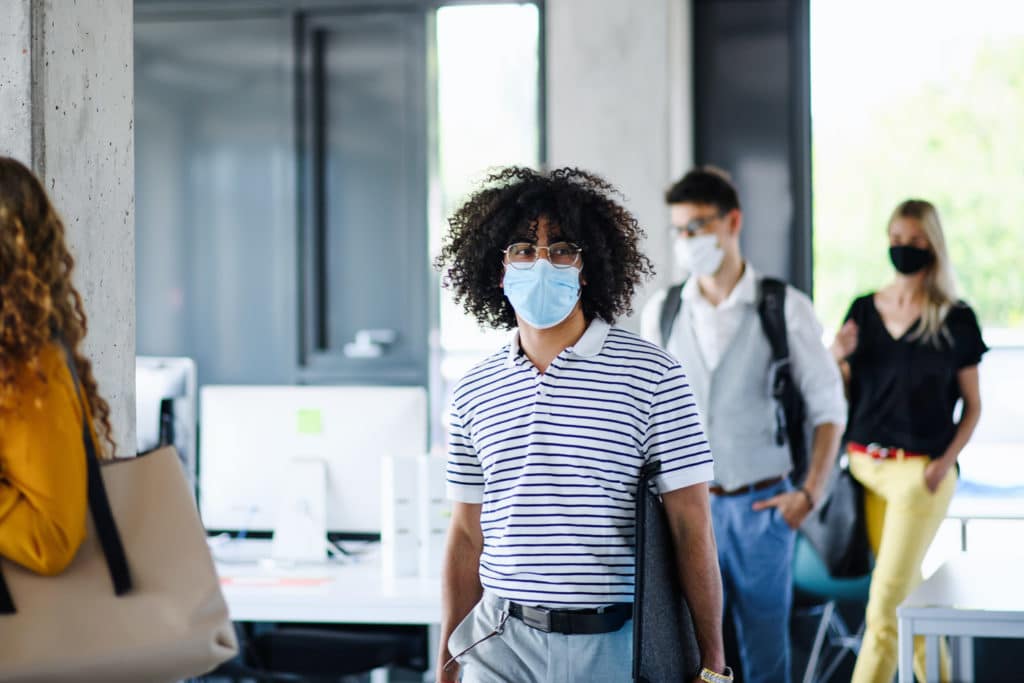July 1, 2020

As we begin to see lockdown restrictions easy, it is all to easy to lurch from feeling a sense of freedom and getting back to normal, to the opposite view of being cautious about going out, returning to work or simply being able to mix with other people a bit more.
Apart from the physical impact of an illness, our mental health may well have suffered or undergone changes during the past few months. For some people, a slower and less demanding way of life has given them time to relax, take up a new hobby or learn new skill. Whether it be baking or gardening, yoga or jogging, many people have been able to nurture some new positive additions to their lifestyle.

For others, it has been a very different scenario. Maybe the worry of a family member being ill, or perhaps a partner working as part of a front-line team in a hospital or an assistant in a supermarket being in regular contact with the public. For all the many that have shopped and acted sensibly, we have all seen the person for whom two metre distance seems impossible to work out, or those that handle every tin on the shelf, before deciding the one they want. For our front-line services, the stress of the job, the constant wearing of PPE and the being away from the family are all extra stresses apart from dealing with ill people.
As we head out of lockdown, it is a good time to reassess our physical and mental health.
As we move out of lockdown, it us just as important as it was in those early days to keep ourselves well and healthy. Not just to look after out immune systems, but also to keep our mental wellbeing in good condition too. It is okay to feel concerned and aware of all that is going on, but we need to do our best to help ourselves and out families not become overwhelmed by it all. The Mental Health Foundation has plenty of good advice on looking after your mental health as we come out of lockdown. MIND also has some good advice including support for young people.
Handwashing is still one of the best ways to protect yourself. It may feel a bit ‘old now, but regularly cleaning our hands is still one of the best ways to stop the transference of viruses. Simply soap and hot water and a good scrub for around 20 seconds, is still a valuable weapon we can all use. When you are out and about and can’t get to running water, use a hand sanitiser. Especially when you are touching door handles, money and other areas that lots of people touch.
Just knowing that a simple thing like handwashing can make a difference, helps to alleviate some of the worry. By encouraging your family to do the same, helps you know that they are also looking after themselves.
Some people have loved the experience of having extra time to pursue hobbies and interests, others have had increased stress with looking after family members and worrying about work.
With more time on our hands, many have taking up baking and cooking more meals from scratch. In many ways, our diets might well be far better than they were three months ago. Veg box schemes have exposed people to a wider range of fresh produce than they might have previously bought. The good news is that an increased variety of fresh fruit and vegetables brings with it an increased intake of important vitamins and minerals. A new healthy habit that is certainly worth continuing as we head into the future.
Frequent hand washing and use of sanitisers can cause dry and irritated skin, especially if you are already prone to dry skin conditions. A good quality natural hand cream can help restore moisture to the skin, dry hands thoroughly and apply cream paying particular attention to the very dry areas. Remember, skin cells grow from the inside to the out, ensuring a regular supply of essential fatty acids can help keep skin cells healthy, try borage oil as a god source of GLA which has often been shown to support healthy and supple skin.
Other nutrients that are helpful are vitamin C and E. When looking for a vitamin E supplement, look for a mixed tocopherol formulation. This will give you a range of all the compounds that naturally make up the vitamin E complex.
Good nutrition can give us a good foundation to keep us well.
You may well regularly take a multivitamin and mineral supplement as a nutritional top up. Hopefully you are still doing so, but now could be a good time to think about expanding your supplement regime to include some nutritional support for your immune health and also your mental health.
B vitamins and magnesium are nutrients that are known to help support normal psychological function and can also play a role in the reduction of tiredness and fatigue. As routines change and alter every few weeks, it can become a strain, feeling tired and fatigued just increases our tension. Look for a B Complex that has the B vitamins in their active forms, the body will recognise them much more easily, enhancing uptake and absorption.
If your energy levels are low, think about supplements that work on a cellular level to help product energy within the cells. Well known as an antioxidant, Co Q 10 works in the mitochondria of the cells, the engine room of each cell. Think of it like a sparkplug to help ignite energy in the cell. Ideal if you are doing a lot of exercise and feel you need more energy.
It’s not just your immune system that needs support, look after your mental health too.
Benagene is a stabilised form of oxaloacetate, a patented and highly effective molecule that raised NAD+ levels. The higher our levels of NAD+, the greater our energy levels. You can read more about it on a previous blog by Dr Traj Nibber.
Magnesium is important for healthy muscle function too, many people take it in the evening to help them prepare for sleep. You can even add magnesium salts to your bath for a relaxing and soothing pre bedtime bath.
Looking after the immune system is not something that we are going to think of purely during the winter now. Immune supporting nutrients will hopefully become something you think about as a general part of your nutritional regime, at least for the next few months.
The ones that everyone knows about are Vitamin C and zinc, both of these nutrients are needed for the proper functioning of the immune system. Zinc and copper need to be in balance in the body, so when taking extra zinc it is a good idea to include copper in your supplement too.
Vitamin D has been in the news a lot recently, Public Health England are recommending everyone has 10µg a day. Vitamin D is most well known for helping calcium absorption and looking after health bones, but it also plays a role in the normal functioning of the immune system. If you can’t face swallowing another tablet, you can take it as drops which is also a great way of getting children to take it. As plans are made to head back to school, it is a good time to also prepare their immune system to keep it in good condition.
Have a good look at your supplement regime, are you taking the right things for right now?
The list of important supplements can seem endless, but it is a good idea to have a nutritional review and see what you are taking and ask yourself why you started taking it. Do you still need it or can you alter it to support your body for its current needs?
Right now, we can all benefit from giving our bodes some extra support. A varied diet, fresh air and a good supplement regime can go a long way in keeping you well.
Back to Blog